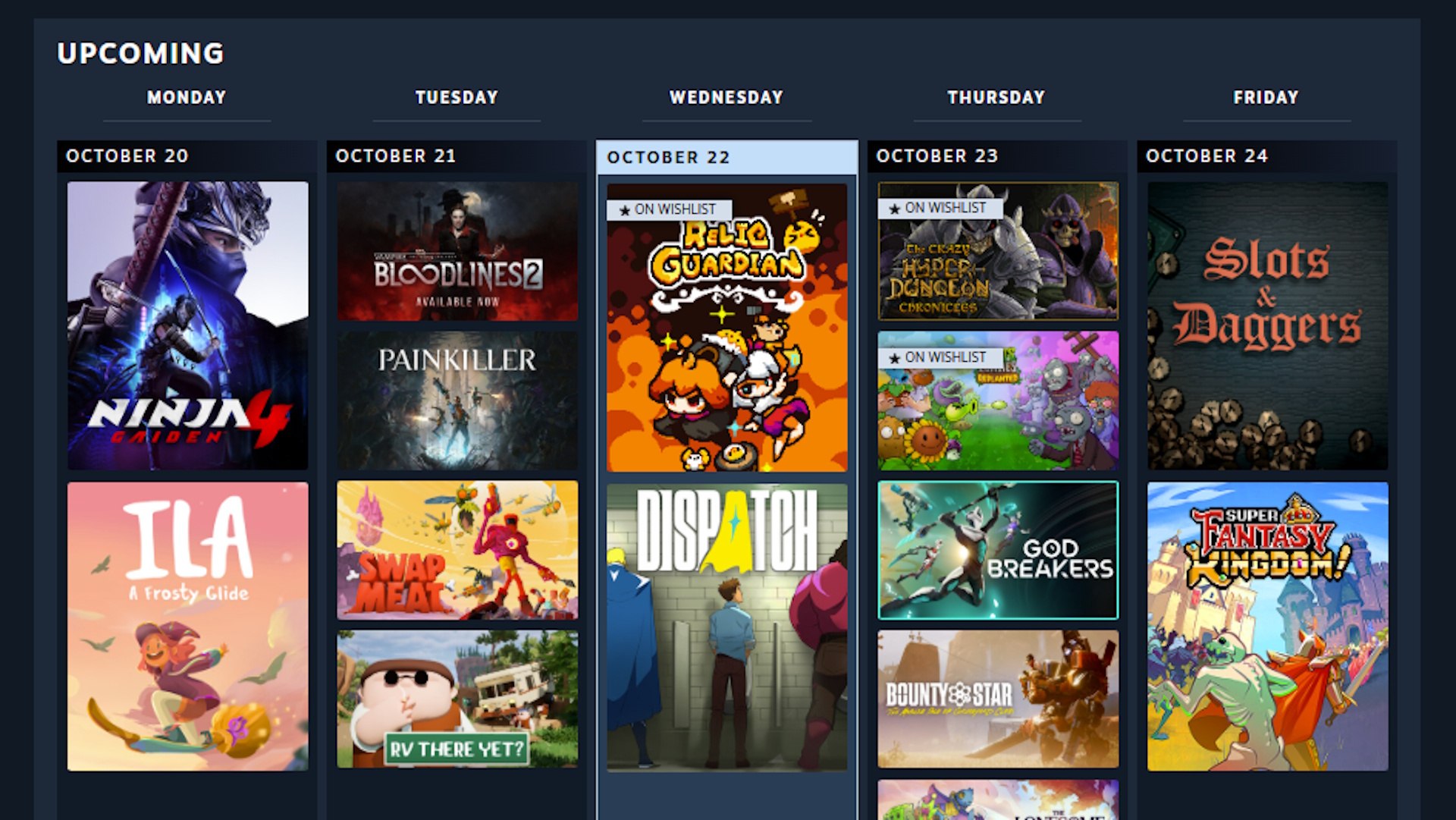"In other words, 72% don't know what a monopoly is," analyst says of study that finds 72% of game devs "see Steam as a monopoly"
"Market share isn't what defines a monopoly, folks"

PC gaming distribution platform Rokky recently published a study conducted by independent firm Atomik Research collecting responses from 306 "managers in the games industry" on "the state of PC distribution" in 2025. Over 88% of respondents said Valve's storefront Steam "accounts for over 75% of their revenue," and 72% "see Steam as a monopoly," according to a graphic showing key findings from the study.
One passage softens this slightly (emphasis mine): "72% feel Steam effectively exists as a monopoly and 53% are concerned about their level of reliance on that single platform."
Even so, veteran analyst and Circana games head Mat Piscatella reckons the core argument is flawed: "In other words, 72% don't know what a monopoly is," he writes on Bluesky.
"Market share isn't what defines a monopoly, folks," he continues. "A monopoly is where there's a single seller for a particular service or good with no substitutes and the ability to charge excessively high rates because of this. Anyone can launch a PC distribution service, and there have been A LOT of them. I mean, words mean things. Anyways, this is the kind of dumb gaming debate that happens every few years I can get behind."
As Piscatella says, Steam's dominance in PC gaming (among other things) is, and should be, the subject of regular scrutiny. The 30% base cut that Valve takes from Steam transactions is a perennial sticking point, with some arguing it's unfair and others insisting it's worth it. And for all the praise heaped on the store's features and discoverability tools, some devs (and gamers) have staunchly hitched their wagon to the likes of GOG.
The point Piscatella makes is that alternative stores exist. Setting aside higher-profile stores like GOG, the Epic Games Store, and Itch.io, Rokky says in its mission statement that it works to help developers and publishers "expand sales of your PC game beyond Steam" by reaching "200+ global storefronts" including many smaller and region-specific shops.

The methodology of the study, namely its limited pool of respondents, 77% of them coming from companies of over 50 employees, 67% being from the US (33% UK), and 75% of them being C-suite level managers, has also raised some eyebrows. That said, I wouldn't throw it out. It's interesting data, and not quite at the level of, "Local waffle emporium reports pancakes are bad, actually."
Weekly digests, tales from the communities you love, and more
"One of the biggest problems PC games and game makers face now is that there are so many games being made on PC that discoverability is extremely difficult, that the windows of opportunity are small, and it's like winning the lottery to break out," Piscatella writes in a separate thread, unable to resist the discourse.
He points to concerns dating back to 2010 that "Steam will destroy the PC games industry" and reiterates that heaps "PC digital distribution storefronts have launched since, PC gaming has boomed, and now everyone and their mom are trying to put PC games out." The fact is, loads of people have made PC game stores; it's giving users a reason to use them instead of Steam that's proved difficult.
Between giveaways and exclusivity deals, Epic has famously shoveled money into a big furnace in its effort to compete with Steam. Even as it plans legitimately good features and updates, the Epic Games Store still isn't profitable as far as we know.
Likewise, a former Amazon exec admitted the company tried and quietly failed to compete with Steam without, frankly, making a visible dent. Why? "Gamers already had the solution," said Ethan Evans.
Instead of a monopoly watch, Piscatella reckons "a juicy Steam argument to make that isn't ridiculous" is examining, as Bluesky user Alex C put it, the de facto "oligopolistic power" Valve wields "given the strong barriers to entry" in the PC store space. You could argue this is also not quite perfect since Valve doesn't set game prices itself (and in another vector, Epic has already undercut Valve on developer share of game sales), but there's definitely something to be said of the influence Steam has over PC gaming – but also, I'd reiterate, of why people use Steam.
Conversely, some folks have wondered what the other 28% of developers are thinking here. "Steam owns the PC market and there is no equivalent competitor who comes close," says Adam Riches of developer Robust Games. Riches is right, of course, but at the same time, Piscatella makes a good point about what distinguishes a true monopoly (without even getting into an illegal one) from an overwhelmingly popular option.
The most interesting finding in the study may be this: "80% of developers expect alternative channels to become a regular part of their distribution mix within five years."

Austin has been a game journalist for 12 years, having freelanced for the likes of PC Gamer, Eurogamer, IGN, Sports Illustrated, and more while finishing his journalism degree. He's been with GamesRadar+ since 2019. They've yet to realize his position is a cover for his career-spanning Destiny column, and he's kept the ruse going with a lot of news and the occasional feature, all while playing as many roguelikes as possible.
You must confirm your public display name before commenting
Please logout and then login again, you will then be prompted to enter your display name.


